Dec
15
A Different Christmas Poem
Filed Under American Patriotism, Peace, Tears of a Warrior, War | Comments Off on A Different Christmas Poem

We included this in last year’s blog. Here it is again.
The embers glowed softly, and in their dim light,
I gazed round the room and I cherished the sight.
My wife was asleep, her head on my chest,
My daughter beside me, angelic in rest.
Outside the snow fell, a blanket of white,
Transforming the yard to a winter delight.
The sparkling lights in the tree I believe,
Completed the magic that was Christmas Eve.
My eyelids were heavy, my breathing was deep,
Secure and surrounded by love I would sleep.
In perfect contentment, or so it would seem,
So I slumbered, perhaps I started to dream.
The sound wasn’t loud, and it wasn’t too near,
But I opened my eyes when it tickled my ear.
Perhaps just a cough, I didn’t quite know,
Then the sure sound of footsteps outside in the snow.
My soul gave a tremble, I struggled to hear,
And I crept to the door just to see who was near.
Standing out in the cold and the dark of the night,
A lone figure stood, his face weary and tight.
A soldier, I puzzled, some twenty years old,
Perhaps a Marine, huddled here in the cold.
Alone in the dark, he looked up and smiled,
Standing watch over me, and my wife and my child.
“What are you doing?” I asked without fear,
“Come in this moment, it’s freezing out here!
Put down your pack, brush the snow from your sleeve,
You should be at home on a cold Christmas Eve!”
For barely a moment I saw his eyes shift,
Away from the cold and the snow blown in drifts..
To the window that danced with a warm fire’s light
Then he sighed and he said “Its really all right,
I’m out here by choice. I’m here every night.”
“It’s my duty to stand at the front of the line,
That separates you from the darkest of times.
No one had to ask or beg or implore me,
I’m proud to stand here like my fathers before me.
My Gramps died at ‘ Pearl on a day in December,”
Then he sighed, “That’s a Christmas ‘Gram always remembers.”
My dad stood his watch in the jungles of ‘ Nam ‘,
And now it is my turn and so, here I am.
I’ve not seen my own son in more than a while,
But my wife sends me pictures, he’s sure got her smile.
Then he bent and he carefully pulled from his bag,
The red, white, and blue… an American flag.
“I can live through the cold and the being alone,
Away from my family, my house and my home.
I can stand at my post through the rain and the sleet,
I can sleep in a foxhole with little to eat.
I can carry the weight of killing another,
Or lay down my life with my sister and brother..
Who stand at the front against any and all,
To ensure for all time that this flag will not fall.”
“So go back inside,” he said, “harbor no fright,
Your family is waiting and I’ll be all right.”
“But isn’t there something I can do, at the least,
“Give you money,” I asked, “or prepare you a feast?
It seems all too little for all that you’ve done, For
being away from your wife and your son.”
Then his eye welled a tear that held no regret, “
Just tell us you love us, and never forget.
To fight for our rights back at home while we’re gone,
To stand your own watch, no matter how long.
For when we come home, either standing or dead,
To know you remember we fought and we bled.
Is payment enough, and with that we will trust,
That we mattered to you as you mattered to us.
Nov
23
Humility & Bravery Visible
Filed Under Combat PTSD, Life, PTSD, PTSD treatment, Tears of a Warrior, Treating PTSD, War | 2 Comments
by Janet J. Seahorn, Ph.D
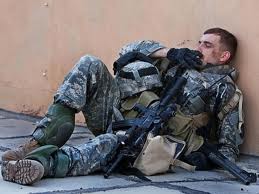
The day was wet and overcast.
Upon arriving at the VA Hospital in Denver, we noticed how many patients seemed to be waiting for a bus or a taxi. Tony didn’t appear overly eager to walk into the building. Just looking at the entrance from the outside made him nervous. Walking inside was even worse. Almost forty years ago, this was the place he went to get help for the nightmares and panic attacks he was experiencing after returning from Vietnam. A young therapist at the time, untrained and unskilled in working with military personnel thoughtlessly told him to be grateful he made it home, and get on with his life. For thirty years, Tony never went back there… or anywhere else for assistance.
Thank goodness we now have a verifiable diagnosis of these frightening memories; it is PTSD, and veteran centers across America are far more proficient in caring and supporting our wounded troops. Nevertheless, Tony had not been back to the Denver VA Hospital until Monday. We were going to talk with troops in the PTSD Unit of the hospital. This is a seven week program where vets get intensive counseling and treatment for their combat traumas. Today there are nineteen men attending the afternoon discussion. Humility can’t quite describe what we feel when we do such meetings.
The majority of the vets were from the Vietnam era with the remaining members from Iraq and Afghanistan. I am pretty sure most people have little understanding of how much suffering each patient has survived; years of torment and silent screams. Each face revealed a unique map of torment. It appeared that every wrinkle held its own story, its own remembrance. Yet, it was the younger warriors who made the most emotional impact. Perhaps this was because they reminded us of our sons. Or perhaps, we were too familiar with the pain they were experiencing and the long journey still ahead. Youthful faces were not yet lined with creases, though their eyes held an even deeper look of anguish. Yesterday’s combat field was not that far from today’s reality. Time had not yet put any distance from the rawness of war. Where several Vietnam vets were willing to talk, the young fighters stayed silent.
At the end of the afternoon, one young marine told me how difficult it was for his mother to understand what was happening to him. He talked about how she just kept saying, “Why don’t you just get better? Why aren’t you back to your old self? You weren’t wounded, what is the matter with you?” and then he said sadly, “she told me, why can’t you just take a pill and be OK?” Then he quietly stated, “I’m trying’ I’m really trying, but I just can’t seem to forget, no matter how hard I try.”
It was heartbreaking to watch him describe his situation. First he endured the many horrors of combat. When he came home, he had to endure the unawareness of the “ordinary” people.
Next, there was the tall, thin youth who sat shifting in his chair seeking a more comfortable position. His back pain was obvious, especially when he cautiously walked bracing his weight with his cane. The sweetest, shyest smile spread over his face as he approached. What he requested was an extra copy of our book, Tears of a Warrior. He wanted to send it to his wife, hoping she might read it before he returned home from the hospital. Perhaps she would gain a better understanding of his condition. Perhaps, by understanding, she would be able to bear the years ahead. Perhaps together they might make it though the dark times still to be faced.
More than ever, I am touched by the courage the young and the old veterans demonstrate. A valor that leads them forwarded searching for a small bit of peace. By making that huge leap of faith to enter this seven week program, they lay bare their demons, hoping by exposure to the light these may leave, or at least become less frightening. For most, I believe this will be true.
Like in combat, sometimes to survive, one must rush towards the enemy fighting with every ounce of power he/she possesses. Healing requires that same force of power – rushing towards the demons, lets them know you no longer will run from them. When the hiding ends the healing begins.
Have a healthy and Happy Thanksgiving.
Nov
14
REMEMBERING VETS
Filed Under American Patriotism, Family, Peace, PTSD treatment, Tears of a Warrior, Veteran's Day, War | Comments Off on REMEMBERING VETS
by Janet J. Seahorn, Ph.D
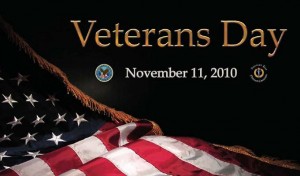
It is cold outside.
I just got home from my last lecture session. Needless to say it was quite interesting as the entire week I have been battling a bad cold and struggling with losing my voice.
Today, there was no voice. Trying to deliver a lecture with laryngitis is a challenge. Hence, I put all of my “words” on my wonderful PowerPoint and proceeded with the lesson.
Since the week is Veteran’s Day week, I decided I would do something different for my university classes. I would talk about the LITERACY of WAR: the vocabulary, the literature, the stories, and of course, the effects of war on both the veteran and the families.
My first slide said this:
My husband is a Vietnam veteran who was a young officer and served in the jungles between the borders of Cambodia and Vietnam. He witnessed a great deal of bloody battles and lost many men. He has two Purple Hearts. The last one he received after being severely wounded. Out of 130 men, only 19 walked away without any injuries. The rest were either killed or wounded. Yesterday I asked if he would like to be the guest speaker for today’s class since I have no voice. His response is what he said he would tell you,
“My wife thinks I’m not miserable enough, so she wants me to talk about PTSD for 90 minutes.”
He said some other things he might share with you, at which time I decided his services would not be needed! (I would like to keep my job.)
Of course my students thought this was pretty funny, even if it was true. But the purpose of this blog is to share with you what I learned from my students. It is pretty sobering.
Out of 140 students, only five had ever had a college session where the professor talked about or honored veterans on Veteran’s Day.
Most students were interested in the session’s information and videos. A few, however, during the first short video paid more attention to their text messages than to the video. Then I put on a slide, “How well did you listen and honor our veterans during the show?” The room was incredible still. The other short clips received 100% of their attention.
- Young people are not insensitive to veterans, I believe their seeming thoughtlessness is not that at all… it is because the adults around them do not take the time to talk WITH them, or to REMIND them of the sacrifices others have made FOR them. Schools, communities, and parents are the ones most at fault. Many have lived the experience and stayed silent. No longer will I remain soundless. I will always give this presentation in the coming years.
- We did an activity where students moved forward when I asked a question if a relative had served, was injured, or died in a particular war. Many took a step when I mentioned WWII. More stepped forward again when I mentioned Vietnam. And last, when I asked about the Iraq/Afghanistan conflict, I was surprised at how many were impacted. Last, I asked for those who had or were currently serving in today’s wars, four stepped forward. I had them face the class so all would see. Then I began clapping and the entire class gave these four young men a standing ovation for their service. It was an emotional moment for everyone.
At the end of class two of the young men commented that this was the first time anyone had acknowledged and thanked them for their service. Today was the first of what I hope will be many. And just as important 140 young people may stop every now and then, think about those who gave and are giving so much, and say a prayer of gratitude.
Perhaps, when they see a vet or know of a family member who has served they will say Thank You.
A few have already called home and done just that.
Nov
2
THE EYES OF TRAUMA
Filed Under Civilian life, Combat PTSD, Life, Tears of a Warrior, Trauma, War, Wisdom | Comments Off on THE EYES OF TRAUMA
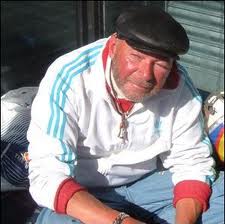
A face conceals many things through silent smiles and quiet words. Yet eyes speak silence louder, clearer than any verbal language. The mouth can easily fake joy, and talk can be nothing more than convincing noise. But the eyes, the eyes can’t fake unfelt laughter or peace. The eyes tell their own story. A story that sometimes screams of sadness; a story that carries the pain of guilt and desperation; a story burdened by trauma inflicted by war, abuse, or neglect.
Perhaps this is why few people are strong enough to stare into another’s eyes without looking away. When doing so we are really checking for evidence that what is said matches what is unsaid. Only eyes can confirm such a truth. We listen more fully, not just with our ears, but with our eyes. Deep listening is what many psychologists such as Daniel Siegel refer to as “feeling felt”. Feeling Felt tells the story teller that he/she matters. That his/her experiences are valued and honored.
Why would I write a blog about eyes? Simple, many, many beings are walking through our world with silent screams. No one seems to notice or take time to pay attention. Few things in life are harder for a human being to sustain than being invisible to others. Homeless people understand, abused children understand, and traumatized vets understand.
Next time you see someone whom you suspect may need to be seen, be brave enough and care enough to listen to what the eyes are saying. It is a humbling tribute that a person has placed his/her trust in your willingness to be with them, even for only a small amount of time.
Oct
27
NOT YET, NOT YET
Filed Under Black Lions, Combat PTSD, Family, PTSD, Trauma, Vietnam Reunion, War | Comments Off on NOT YET, NOT YET

“Not yet, not yet.” These were the words a mother of a soldier who returned from war with severe, incapacitating PTSD composed to her son’s commanding officer almost forty years later. The mother wrote from a voice in heaven, as if her son had died, because in many ways he had – died emotionally; died cognitively; and died in spirit. Years had passed and she wanted his leader to know how much her son admired the man. How much he believed the officer had done everything possible to prevent the ambush that cost the lives of sixty-four troops. A dispensation of grace, for through her son’s stories, the mother realized how much trauma and burden the officer must be carrying from such a massive loss of life.
Even after four decades the pain and memories still persist as if the battle had just occurred. I am left to wonder how long a human being must or can endure such heartache. Being in charge of the lives of others is an incredible responsibility. A responsibility that makes losing those he led more devastating. One death would have been terrible, but sixty-four is beyond measure.
We heard the story while attending a reunion of the Black Lions who served in Vietnam. The get-together was a relatively small gathering compared to many war reunions. Small because the Black Lions were an elite unit of soldiers who traveled light both in men and equipment. And smaller still because so many had died during the many jungle encounters with the enemy.
Almost every survivor had a story and every attendee had an inner strength that somehow allowed him to live forward each day until now. I only hope that at this point, the time that remains in these old warrior lives can be lived with great joy, peace and personal forgiveness if needed. Our veterans deserve a bit of these gifts and so do their families. So when the mother wrote, “Not yet, not yet,” meaning… do not leave this earth too soon, the same words persist, “not yet, not yet”, the time for personal healing is now!
Blessings and God Bless our vets young and old.
Oct
12
Dang – These Stats Are Amazing
Filed Under Black Lions, Combat PTSD, Life, PTSD, TBI & PTSD, Tears of a Warrior, War | Comments Off on Dang – These Stats Are Amazing
by Janet J. Seahorn, Ph.D.
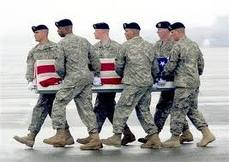
As you might imagine, we have been doing research and accumulating multiple types of data for well over ten years. Much has been on PTSD along with statistics on various numbers of vets who served in different wars, as well as their injury and death counts.
Over the last two weeks we have had numerous individuals send us a variety of articles and information on the Vietnam War. Perhaps the most startling was a number that I checked out through several sites; it was a number that claimed only 1/3 of veterans who served in Vietnam are still alive. This number was part of a 2000 census count, so I can only assume the number is far lower ten years later. The actually statement was “Of the 2,709,918 Americans who served in Vietnam, less than 850,000 are estimated to be alive today”.
Yikes. This is a number neither Tony nor I ever expected. Perhaps we don’t want to admit that we are growing that much older. Or perhaps the numbers may show an underlying concern with the health of Vietnam vets who endured massive amounts of toxic chemicals while serving in the war zone. At any rate, the small number of Vietnam vets still living is a real worry.
Another statistic that we have seen is that of the 9,087,000 military personnel who served from August 5, 1964 – May 7, 1975, only 2,709,918 actually served in Vietnam. Of those who were in Vietnam, only around “40-50% either fought in combat, provided close support or were at least fairly regularly exposed to enemy attack” (Bob Beavis, 2010).
And most alarming in a 1995 census around 9.5 million individuals falsely claimed that they had served in Vietnam when they had not; in the 2000 census almost 14 million individuals falsely made such a claim. Yikes, no wonder the Veteran’s Administration is having a harder time trying to identify who did and did not serve when there are so many “false” claimants in America. As my grandmother would say, “Shame, shame, on all of them”.
Last, and this I find very interesting given the amount of press that has been given to the number of Vietnam vets who were supposedly alcoholics, drug users, and homeless, according to various vet sources (VFW Magazine, the Public Information Office…) there was/is no difference between those populations who served in Vietnam and those who did not.
Also, we often hear about how many Vietnam vets ended up in prison… simply not true. Vietnam vets were less likely to be in or served time in prison – only ½ of one percent (Bob Beavis). Over 82% of Vietnam veterans seemed to have made a pretty successful transition to civilian life in spite of dealing with severe injuries and PTSD.
So congratulations all you Vietnam vets; you have lived a truly exceptional life, served your country with honor, and had the incredible strength and internal courage to continue to live life with high principles and personal pride.
Sep
28
SUICIDE: DID YOU KNOW?
Filed Under Combat PTSD, Life, PTSD treatment, Tears of a Warrior, Trauma, Treating PTSD, War | 1 Comment
by Janet J. Seahorn, Ph.D
Did you Know:
·
Suicide is one of the leading causes of death in America. Every year it takes more lives than auto accidents.
· Suicide impacts kids as young as five and as old as ninety-five.
· The rate of suicide in the armed forces continues to grow with each deployment.
· Current statistics show an active-duty suicide every 36 hours – 18 veterans a day dies by their own hand (Lily Casura, Napa Valley Register, 9/19/2010).
· Women vets are two – three times more likely to commit suicide than non-veteran women (American Psychiatric Association)
· Suicide is more than an emotional state; it is a physical condition as well.
· Depression is treatable… suicide is not —– the final step has already been taken.
Combat is an unhealthy enough challenge. Yet, when a veteran returns home, the struggle may be even worse. Worse because there are fewer people to talk to who understand what he/she has gone through. Worse because during combat one didn’t always have time to think about the horrors of war; now at home, there is often too much time to think. And worse, because depression of any kind is a hidden desperado that becomes a very real physical condition, few understand and address the issue.
In so many cultures, including American, we have been led to believe that depression is something that is strictly emotional. Something that we can easily get over if we just put our “minds” to it. It invades every cell of the body. It steals the good hormones such as serotonin, endorphins, dopamine… and replaces them with a whopping dose of cortisol – one of the stress hormones that cause fight, flight, or freeze. Unfortunately for many, the way one may must fight or fight depression is suicide.
One reason this issue is so important to me is it hits close to home. In the city of Fort Collins, Colorado, suicide has already been the cause of over 39 deaths this year – far more than those who die in traffic accidents. One of those statistics was a close friend of a student in my university class. Imagine sitting in class and getting a text message stating your close friend has taken her life. When I was teaching middle school many years ago, a wonderful young man decided to end his life before he ever had a chance to begin his life. His parents were certain their child’s death was an accident, even though evidence indicate the young man made three different attempts at ending his life before one finally worked.
It is important we all know more about this topic, Suicide. Like any enemy, the more we know about our opponent, the better we can fight the battle and win. So I’ll end with one of my favorite quotes by Emily Dickinson, “Not knowing when the dawn will come, I open every door.” Try to keep opening new doors; sunshine is waiting behind one of them. 
Sep
5
IF YOU’RE NOT OK, THEN WE’RE NOT OK
Filed Under Black Lions, Brain Injury, Combat PTSD, Family, Life, PTSD, PTSD treatment, Tears of a Warrior, Treating PTSD, War | Comments Off on IF YOU’RE NOT OK, THEN WE’RE NOT OK
by Janet J. Seahorn
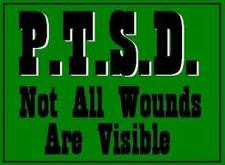
Every day there are more and more wounded victims of war. These are the spouses, the children, the parents, the sisters and brothers of the veteran… and the list grows. It is one reason that we continually urge those impacted by serving in a war zone to get help as soon as possible if they begin to feel the “fall out” effects of combat.
There are centuries of evidence that prove this point. When a person returns from a traumatic experience and normal life is no longer normal, those around will become part of the trauma. It is an obvious statement, yet, there are too many veterans and families that refuse to acknowledge and deal with the situation.
It is like having an elephant in the room that no one wants to recognize or admit is there. The unrealistic thinking goes something like this… “If I just ignore the large problem, it will eventually go away”. The only problem with the problem is that it does not go away, in fact, it often grows bigger and bigger. And it begins to become more active. Imagine having a raging elephant in the room charging around with its large tusk and huge trunk. Wow, and I haven’t even mentioned all the crap it leaves lying around. It feeds on everything in sight, so eventually your house is a mess and you don’t have a safe place to hide from the growing beast.
Human nature seeks coherence and peace, even in the most chaotic of times. It is always looking for that which is safe and enjoyable. It craves stability and excitement, joy and delight. When these are absent for long periods of time, it is easy for depression and hopelessness to set in. You see, if someone you deeply care about is not OK, then it is quite challenging for you to be OK. And if both of us are not OK, then WE, as a couple, a family, a relationship, are not OK! Herein lies the hard choice — you can either accept the “crap” and continue on the path you may currently be on, or you can make another choice. A choice that can lead to healing. A choice that may allow the relationship to be more positive and loving. A choice that begins to do something about THAT elephant in the room.
Either way, we all choose which way we will continue our journey. Whatever choice we make will not be an easy path. However, one definitely has more constructive possibilities than the other. We persistently mention that if children are involved, than getting the elephant out of the room is crucial to their well-being and healthy development. As adults, we make our own choices, but children are subject to the outcomes of our choices. More than likely, they don’t get to have a voice; they are the helpless victims of our selection, good and bad. Therefore, think deeply about what you are and are not doing. Your children’s lives depend on which options you make.
For some of us, we didn’t have the information about PTSD, TBIs (Traumatic Brain Injuries), and other impacts of war. We did the best we could; at least, we want to hope we did. New military personnel have better information. They can and must make better choices, if not for themselves, for their children and the future of our next generation. Healthy life truly depends on this choice.
Aug
28
THINKING ABOUT WAR AND PEACE
Filed Under American Patriotism, Black Lions, Combat PTSD, Tears of a Warrior, Today's War, War, Wisdom | Comments Off on THINKING ABOUT WAR AND PEACE
by Janet J. Seahorn

For the last several weeks, my husband and I have been researching and preparing for a presentation we would be giving to the Nebraska Vietnam Veteran Reunion.
We were asked to talk about how we came to write our book, Tears of a Warrior: A Family’s Story of Combat and Living With PTSD. It was such an honor to be invited to be a part of this amazing event which has been going on for the last twenty five years. The night before we left, I read an article Tony had given me titled, “Our Helmets Duel No More”. It was written by retired Lt. General Hal G. Moore. Some of you may be familiar with General Moore as he wrote the books, We Were Soldiers Once… and Young (1992) and We Are Soldiers Still (2008).
Reading General Moore’s experiences regarding the Vietnam War, and later revisiting the country and meeting the Viet Cong General he fought against over forty years ago, made me wonder if such a reunion would ever be possible for those fighting in Iraq and Afghanistan? I questioned whether either side would be able to feel forgiveness. Whether the intense hatred some people in these countries feel for Americans, our way of life, our religions would lessen with time? Whether the many good deeds both our military and civilian organizations are doing building schools, hospitals, and other improvements will be remembered?
What I did not wonder about was the incredible amount of loss, pain, and sorrow war of any kind takes on a country, a community, and, most of all a family. General Moore began his story with these words, “When the blood of any war soaks your clothes and covers your hands, and soldiers die in your arms, every breath forevermore becomes an appeal for greater peace, unity and reconciliation between nations”. Wounds of the body and soul are branded deep into the heart. Those who fight for America pay a very high price for her freedom.
The article read like so many war stories. Trauma, victory, failure, sorrow, the ugliness of battle… and the list goes on. But the piece ended with some pretty profound advice:
When the heartbeat of one soldier stops forever, the heartbeat of our nation should accelerate, driving us to ensure that this life was not sacrificed in vain. It should rouse us to seek better ways to understand and deal with international differences. We owe our dead and their survivors no less. We owe our children, and our children’s children, much more”.
The leadership we loose with each life, the intellectual and emotional goodness broken by combat may only be repaired with each person’s prayer, and every country’s commitment to searching for more appropriate ways to solve our differences. But until or if this every happens, we need to make sure whoever we send to fight our wars, as a nation we must do everything humanly possible to mend, not only the warrior, but the family unit that was also part of the sacrifice.
God Bless America, and God Bless our Vets, Young and Old and their Families
Aug
25
SPOUSE NEEDS HELP
Filed Under Black Lions, Combat PTSD, PTSD, PTSD treatment, Tears of a Warrior, War | Comments Off on SPOUSE NEEDS HELP
by Janet J. Seahorn

There it is again – another message from a spouse needing help to cope with the conditions his/her companion faces after returning from combat.
Just reading their stories make me feel like weeping, screaming, and wondering… why our various government systems aren’t doing much in this area. To be sure, some Vet centers are implementing some innovative and helpful programs for spouses and families. Yet, far too many are going unnoticed and unheard. Some spouses don’t know where to go to access services; some simply can’t find anything near them that makes it feasible to get such services; and some want/need groups they can access through the internet. As one person explained… I am looking for a group that will tell me what they are going through and how they are handling it. I want some group I can talk to and be open and honest with that I can tell them the things that wives of PTSD vets are afraid to open up about…PLEASE HELP ME TO FIND THAT GROUP I KNOW SOME OF THE THINGS I HAVE GONE THROUGH I DON‘T WANT ANYONE TO KNOW ABOUT…
There is such pain just hanging out in our families and their personal relationships. Pain that few others see. Pain that the spouse and family don’t feel comfortable or safe sharing with anyone other than individuals who have been through similar experiences. Finding appropriate and effective programs need to be a high priority if our veterans and their marriages are to survive in a healthy and positive relationship.
After reading an e-mail from a wife of a Vietnam vet with PTSD who is also the mother of a son who just returned from combat with similar difficulties (double whammy), I responded with this note. I hope she won’t mind me sharing with our readers, since she is only one of hundreds who are worried, discouraged, and questioning what can be done to make things better. In almost every such message, the writer speculates if she has done something wrong or not done enough, whatever enough might be in these situations. Below is my response – I hope it helps.
Please know you have done nothing “wrong by your children”… war has done the damage. PTSD is similar to trying to swim upstream through raging rapids and water falls. It is a moment by moment and daily challenge, but there is hope. The key is to get as much information as possible, set and STICK to appropriate boundaries, and try as hard as you can not to make excuses for your husband’s or son’s behavior. I did this for a very long time and still, at times, fall into this hole. By making excuses for our loved ones, we do not hold them or ourselves accountable for the behavior. Just like any challenging illness or disability, the individual and family must work twice as hard as those not encumbered by the condition. What I was really saying when I made such excuses is that I didn’t believe that either I or my husband could do better or get better, and that simply was not true or accurate. We continue to heal, but we still have our bad days/times, which we know won’t totally disappear. The biggest hope is that we are better than we were before Tony got help with the VA center. By writing the book (Tears of a Warrior), I spent nine years researching the information and thinking about how it related to our situation. I kept saying to myself, “if only I/we had known this when… we could have done so much better or differently”.
It is important that both your husband and son seek help with your nearest VA center. If you aren’t happy with the service there, go somewhere else. We found we had to do that and finally found a wonderful VA center here in Ft. Collins and Cheyenne. ### was not so helpful.
As for your son, I understand how you must feel… both my sons are grown and on their own, but there are times I wish I could “kiss their boo boos, and make the hurt go away” like when they were little. A mother’s heart never is far from those of her children. Just the way it is. Now I tell my sons, “I can not solve their problems, because this is yours to do for yourselves. But I will always be there to listen, support, and love you.” I try to end by telling them this…”I know you are a wonderful, intelligent, and strong person. And I know you have the determination and courage to solve this situation. I know this with all my heart and I trust you. Keep trying. You can do it.”
The other point that I will end with is to ask yourself, “Do we have more good times than bad? Are we both trying and improving?” If the answer is YES, we keep going. If the answer was ever NO, things would be drastically different.
I hope this helps. Please know there is help out there. Check with your VA center to see if their are any support groups for spouses. For some these groups are a big help… I believe one has to be in the right group – not in a group where everyone just complains and leaves more depressed.
One last note: I was truly surprised when I did some recent internet searches on support for spouse to find there are few available. One I found is
http://www.giftfromwithin.org/html/groups.html.
If in all your searching nothing viable is available, think about starting a group. Almost every organization and many services began with one person taking action and building something useful for others who share a similar need.
Best of luck and blessing.

